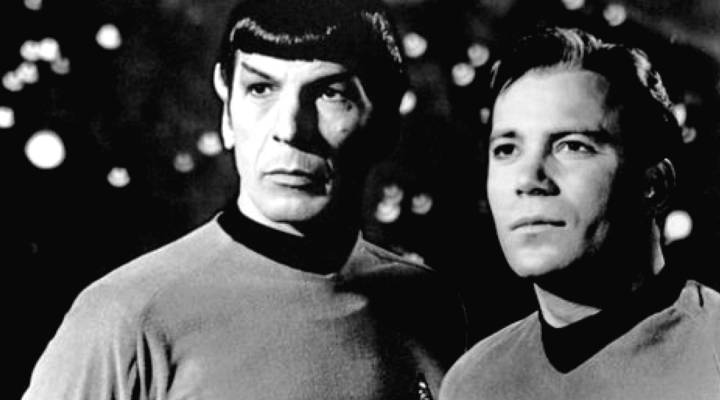
50 years and beyond: Voices from the ‘Star Trek’ universe
Share Now on:
50 years and beyond: Voices from the ‘Star Trek’ universe

“Star Trek” turns 50 on Sept. 8, and instead of buying it a fancy sports car, our mission is to boldly go down the “Star Trek” rabbit hole, or rather, wormhole, and nerd out about the show to mark this milestone.
We spoke to fellow Trekkies, including a “Star Trek” historian, a NASA technologist and a showrunner, about why this series matters.
For all of the show’s focus on teleporters and holodecks and deflector shields, the one thing that everyone seemed to agree on is that the show transcends fiction. Underneath the fantasy, “Star Trek” tackled real issues and inspired real people.
Check out our series of features below, where we discuss the show’s use of sci-fi and technology, how the series reflected modern-day issues, and what it was like working behind-the-scenes.
Mark Altman has been called the “world’s foremost Trekspert” by the Los Angeles Times. To celebrate the show’s 50th birthday, he co-authored a two-part oral history titled “The Fifty-Year Mission: The Complete, Uncensored, Unauthorized Oral History of Star Trek.” Altman reveals that the sci-fi series had the capability to mirror our own lives, from its allusions to the Vietnam War to its ability to predict future technology.
“Star Trek” writers like Mark Altman, along with many other fans, might think that the science and technology of Star Trek isn’t “beyond the realm of possibility.” But David Batchelor, an aerospace technologist at the NASA Goddard Space Flight Center, has given it real scientific thought. He decided to rank 18 of the show’s technologies based on how scientifically plausible each one is. You can find an infographic of all of these technologies and their rankings here.
Brannon Braga has done it all for “Star Trek.” He’s worked on the movies and TV series as a writer, producer and showrunner. Braga sat down to talk with us about the series’ longevity and what it was like planning some of the show’s plotlines. He bravely admitted that maybe he relied a little too much on technological fixes to resolve some storylines. “Technobabble,” he calls it. But that’s what makes the series so great, right? After all, don’t you think it’s important to know that the inertial dampers are offline?
The Intrepid Sea, Air & Space museum in New York City is celebrating the 50th anniversary of Star Trek with a large exhibit called “Star Trek: The Starfleet Academy Experience.” Inside there are costumes and props from the show, as well as interactive stations where museum-goers can learn Klingon, shoot phasers and teleport. At the entrance, a projected Starfleet officer welcomes museum-goers by saying “Live long and prosper,” and some even lift up their hands in the iconic Vulcan gesture. Check out our interviews with some of the attendees on what the show means to them.
We asked our audience: How do you identify with “Star Trek” and what’s a film or episode that especially resonated with you? Turns out that the franchise taught our listeners about friendship and helped jump start careers. Go ahead and take a listen.
Numbers are an integral part of the “Star Trek” universe. You have your 14 kiloquad interface modules, your 25 bilateral kelilactirals, and your Warps 1 through 9. But there’s one that’s especially important to the series: 47. The series references the number multiple times, like in the episode “Family” where Picard drinks a ’47 wine from his brother’s vineyard, or in the episode “Frame of Mind,” where Cmdr. William Riker shows up as a patient of Ward 47. What could be the meaning behind all of this? We looked into the conspiracy, which you can read more about here.
There’s a lot happening in the world. Through it all, Marketplace is here for you.
You rely on Marketplace to break down the world’s events and tell you how it affects you in a fact-based, approachable way. We rely on your financial support to keep making that possible.
Your donation today powers the independent journalism that you rely on. For just $5/month, you can help sustain Marketplace so we can keep reporting on the things that matter to you.


















